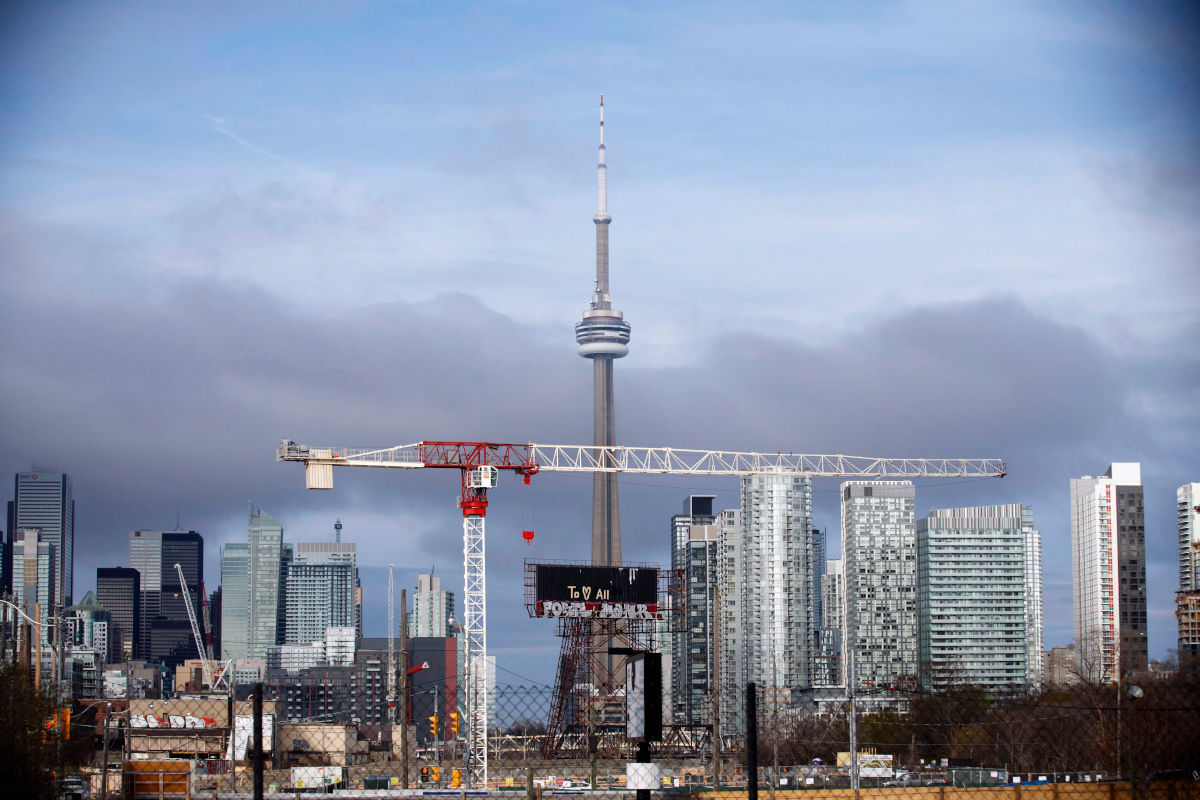Condos are the gateway to homeownership for many Canadian families and the key to unlocking much-needed retirement funds for downsizing boomers. And in the country’s priciest real estate markets, they are often the only option for homebuyers of any age.

But trade tariffs may soon nudge even condo prices out of reach for many.
The tariffs imposed by U.S. President Donald Trump and the countermeasures they have triggered around the world are pushing up material costs for the Canadian construction industry, said Sal Guatieri, senior economist at BMO Capital Markets.
“It’s mainly steel and to a lesser extent aluminium and softwood lumber,” he told Global News in a phone interview.
READ MORE: Here’s how Canada’s new tariffs on U.S. imports could impact your weekly shopping bill
U.S. steel prices have climbed by 40 per cent, while aluminium prices are up over 15 per cent since the White House announced the tariffs in March, he added. And those increases are spilling over into the Canadian market, he noted.
“If U.S. steel prices are going up, global steel prices are going up as well,” he said.
With the U.S. economy firing on all cylinders right now, U.S. demand for steel hasn’t really budged, which means the tariffs have resulted in price increases rather than an oversupply of steel that could have had the opposite impact, he added.
WATCH: Auto industry braces as U.S. threatens potential tariffs

There’s also the fact that Ottawa has imposed its own duties on imports of steel, as well as aluminium, from the U.S. as part of the $16.6 billion in tariff countermeasures that kicked in on July 1. Canada’s construction industry has typically relied on the U.S. for around 25 per cent of the steel it uses, according to the Canadian Coalition for Construction Steel (CCCS).
In particular, Canada is a net importer of rebar, the steel used to reinforce concrete in condo towers, which is subject to the counter-tariffs, said David Schoonjans, senior director of cost consulting and project management at Altus Group.
Schoonjans estimates rebar makes up around 4 per cent of the cost of a condo tower, meaning a 25 per cent import duty would add up to one per cent in construction costs.
And much of that will likely be passed on to condo buyers, especially in markets like Vancouver and Toronto where the demand for condos has been soaring, BMO’s Guatieri said.
In Ontario, the increased cost of steel could add between $10,000 and $12,000 to the cost of an average condominium unit, according to the Residential Construction Council of Ontario.
READ MORE: These animated maps show Canada has so much more to lose in a trade war than the U.S.
And steel prices may rise more than they already have. Ottawa has been contemplating new import barriers to prevent other countries from dumping their steel into Canada in an effort to avoid U.S. tariffs.
Without access to global steel producers, “the Canadian construction sector will face shortages of many types of steel and still higher prices,” the CCCS said.
When it comes to aluminium, it’s typically used for the window frames of residential condo towers, but it’s unclear whether the tariffs will have an effect given that Canada is a net exporter of the metal, Schoonjans said.
Builders don’t have much use for lumber for the high-rises that populate the skyline of Canadian cities, but the material is used in three-storey complexes such as townhomes, he added.
READ MORE: Trump’s tariffs on Canadian lumber are pricing Americans out of the U.S. housing market
It’s unclear when Canadian homebuyers will start to feel the impact of the tariffs.
“There will be a lag,” Guatieri said, noting that builders would first have to work through their inventories of materials for which they paid pre-tariff prices.
But the time of reckoning may not be far off.
For steel, the order cycle is about six weeks, Peter Warrian, a steel expert at the University of Toronto, told Global News via email.
“You would expect to start seeing the impacts,” he said.
Any construction cost increases will add to existing price pressures that have seen condo values skyrocket in some markets. In Vancouver, the price of apartment homes reached $704,000 in June, up 17 per cent from the same month last year. In Toronto, it stands at $561,000, up 8 per cent from a year ago.
But other markets would feel the pinch as well.
“Overland transportation costs in Canada are prohibitive and the vast majority of Canadian production is located in central Canada, far from many Canadian markets,” the CCCS warned, adding that supply issues are particularly acute in British Columbia and Atlantic Canada.
“Demand for condos remains strong with millennials, international migrants, downsizing baby boomers and speculators all clambering for a little slice of the sky,” BMO economic analyst Priscilla Thiagamoorthy wrote in a note to clients on Tuesday.
But in part because of the tariffs, “condos, seemingly the last affordable housing option, may not remain that way much longer,” she noted.




Comments